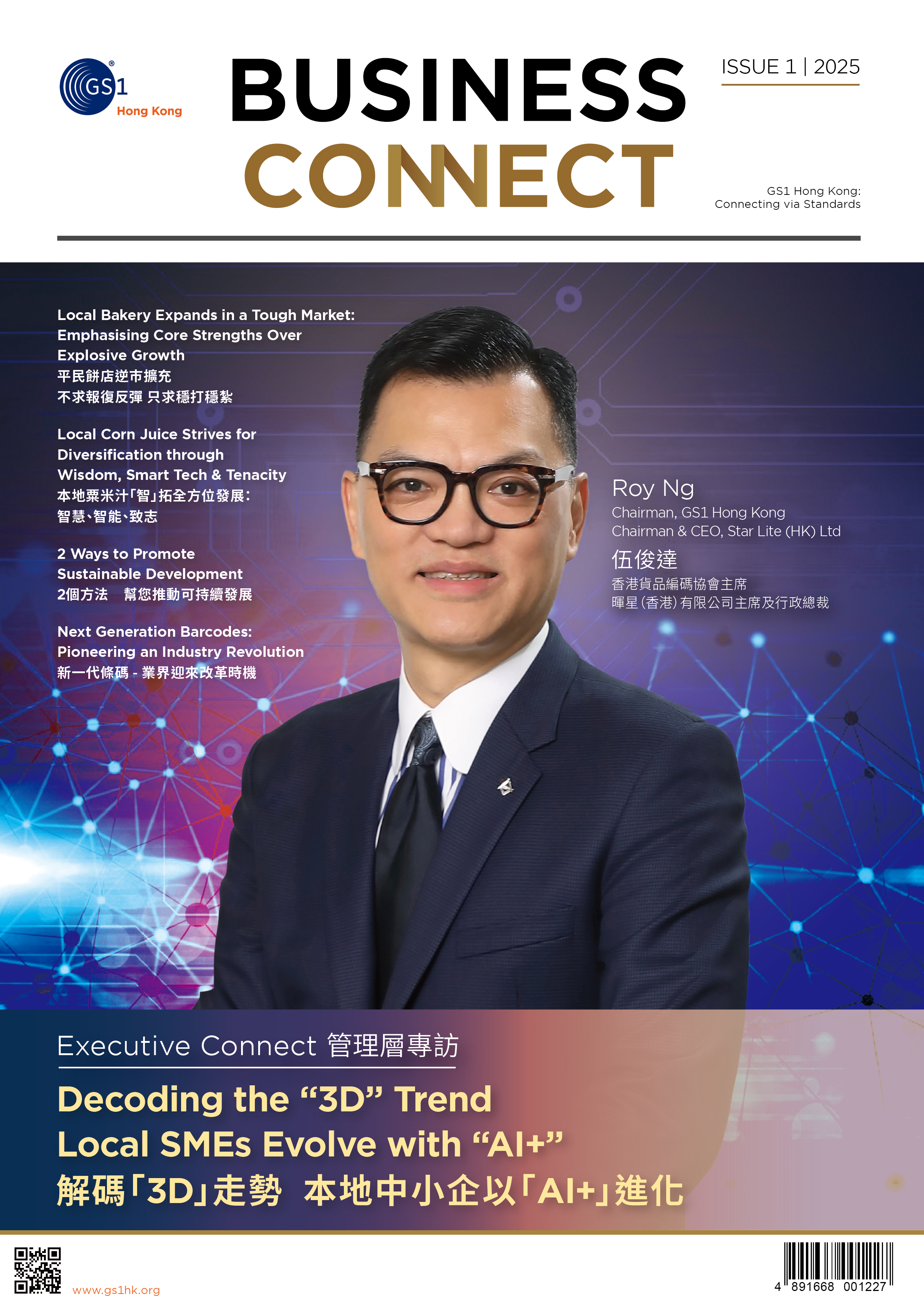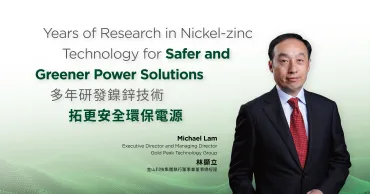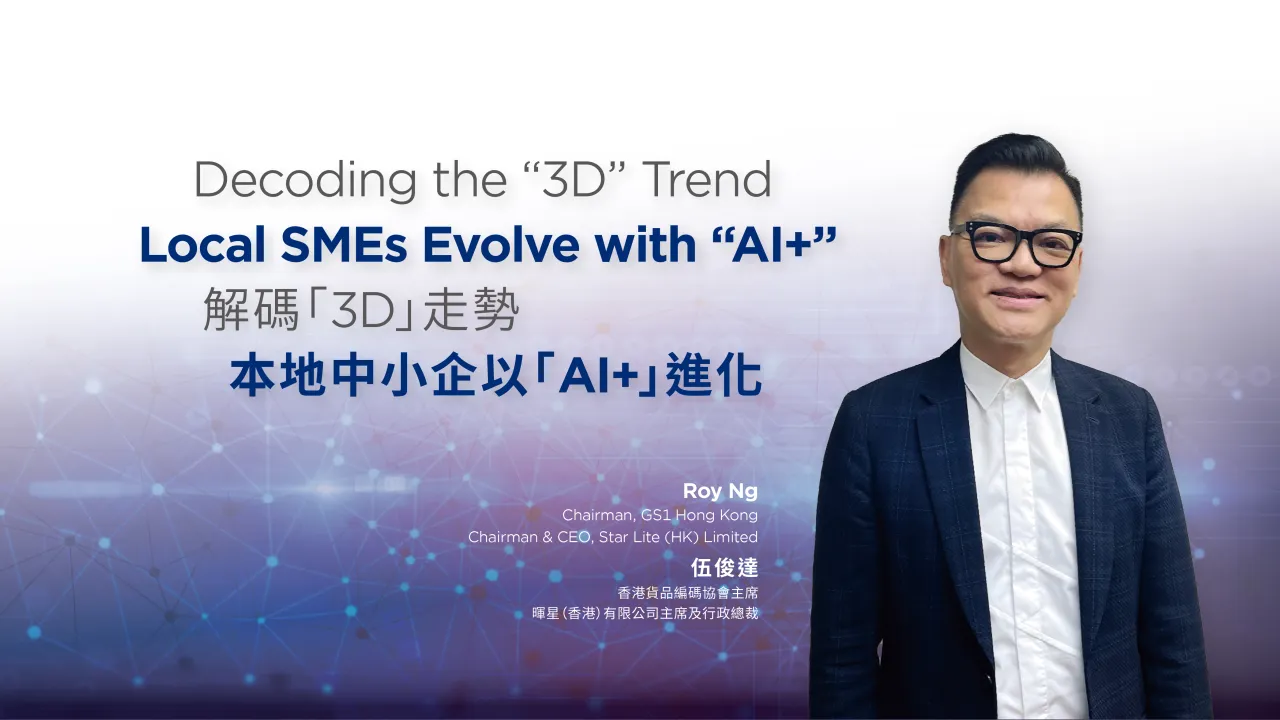
Decoding the "3D" Trend Local SMEs Evolve with "AI+"
The government work report at last month’s National Committee of the Chinese People’s Political Consultative Conference (CPPCC) highlighted the need to continuously promote the “AI+” initiative, seamlessly integrating digital technologies with manufacturing and market advantages. Roy Ng, the new Chairman of GS1 Hong Kong, and Chairman & CEO of Star Lite (HK) Limited, resonates with the direction. He believes that AI and robotics will enhance the quality of life and work for everyone, and in the future, AI adoption will be as ubiquitous as mobile phones. Rather than replacing manpower, it will boost efficiency. He stated that the foundation of GS1 Hong Kong’s future development lies in a “3D” framework – Digitalisation, trusted Data, and Decarbonisation. Innovation is the only way for local SMEs to grapple with today’s economic volatility and transition.
“AI+” in All Sectors
Roy has been a board member of GS1 Hong Kong since 2007. After his former company, where he served as CEO, was sold, he forwent a lucrative offer and embarked on his own entrepreneurial venture with the encouragement of his family. He once established himself as the market leader in mobile phone cases in Hong Kong, and achieved remarkable success in his European brand dealership business. As a veteran entrepreneur, he holds a number of public office positions as well, including Deputy Chairman of the Business Facilitation Advisory Committee (BFAC) of the HKSAR Government, Member of the Competition Commission, General Committee Member of the Hong Kong General Chamber of Commerce.
He is also a dedicated supporter of social causes. In addition to being the Adjunct Professor at CityUHK’s Academy of Innovation in April last year, where he cultivates the next generation of innovative leaders, he has been a long-term donor to the services providing safe shelter for abused women and their children. He is committed to safeguarding the rights and welfare of women and children, and supporting young people in their education.
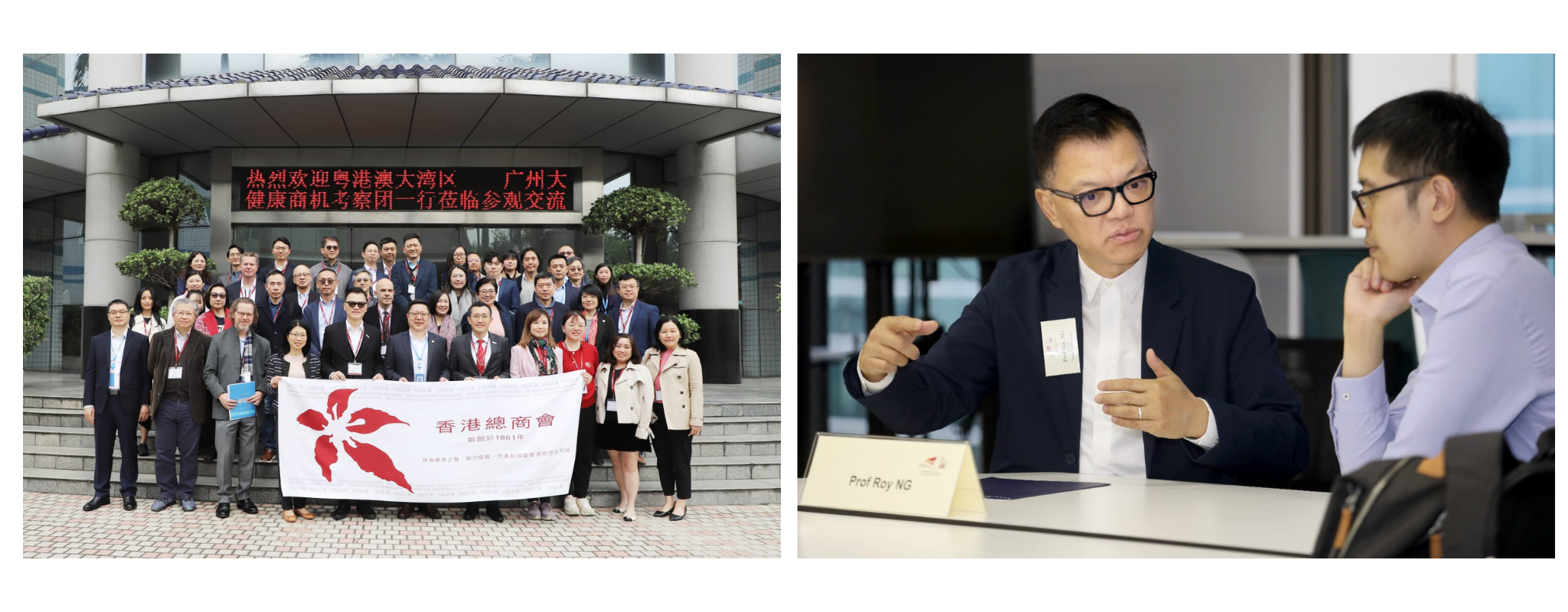
After years of research and development, Roy is about to launch a new brand, Nara. E, a cosmeceutical product that can penetrate the skin and reach into cells. He points out that his business is a good showcase of “AI+”. “Our products have many ingredients, and each ingredient requires a large number of scientific research reports to validate its effectiveness. In the past, we would perform search on Google and validate manually, which could be very time-consuming, but AI tools like Deepseek can help extract the necessary information from an ocean of documents and generate well-structured analysis reports. Today, technology permeates all industries, developing fields like EdTech, FinTech, and FoodTech. I believe that AI will also be integrated into various sectors, such as healthcare, driving social and economic development.”
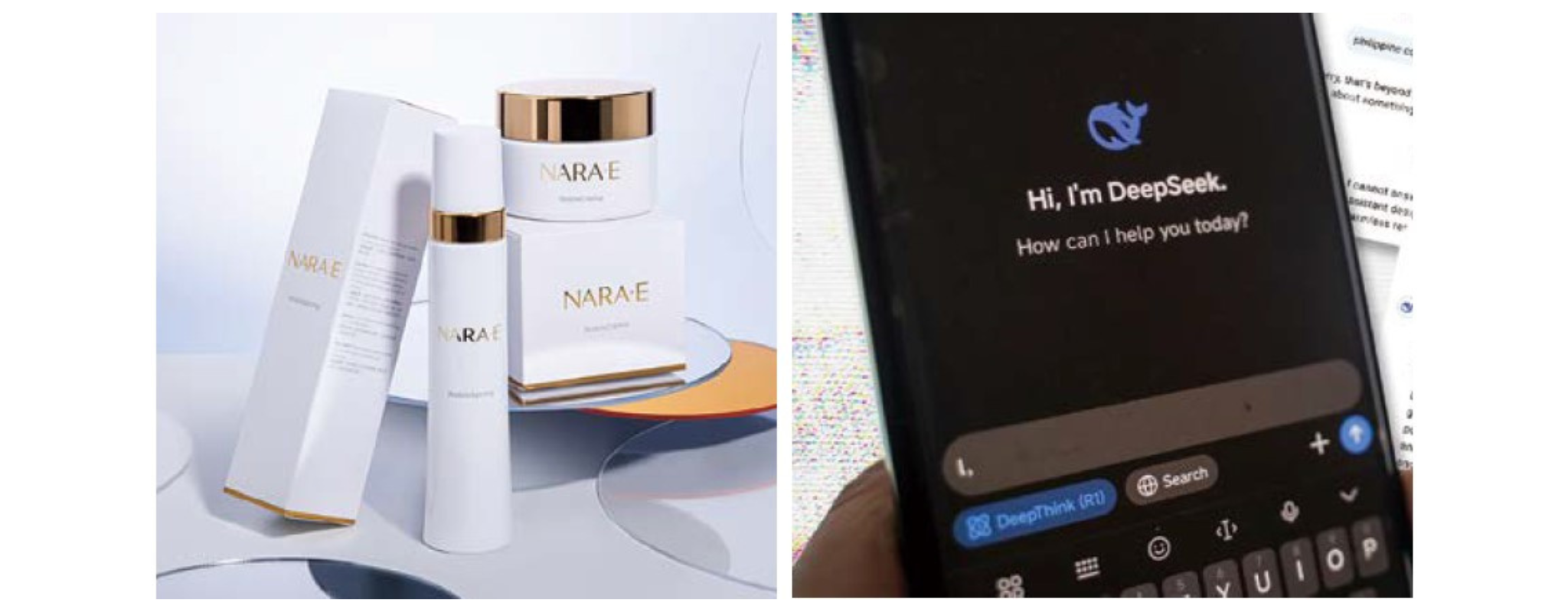
How “3D” Supports SMEs
Generative AI has the capability to process and analyze vast amounts of data, enabling the prediction of future trends. Roy emphasizes that accurate and trusted data is crucial to unleash the power of AI, with GS1 standards playing a critical role in ensuring data credibility. “GS1 standards represent a global language of business, enabling companies to own and share high-quality data related to products, locations, assets, and other supply chain elements. This helps AI in delivering useful and valuable answers, so GS1 will continue to play a pivotal role in the age of AI.”
Roy has witnessed GS1 HK’s long-standing efforts in promoting digitalisation and innovation for the local business community, such as bridging O2O businesses and facilitating product listing and sales on e-marketplaces with barcodes. He shares his staunch support to the launch of GS1 HK’s “1QR”, a next-generation 2D barcode, and implores retailers and manufacturers to adopt it to prepare themselves for the future retail market.
By observing his children’s behavior, Roy quipped to foresee certain consumption trends. “My children are Gen Z, so naturally, they are always on their phones. They are passionate about sports, prioritize health, and hold strong opinions on issues like climate change, renewable energy, and social equity. They actively seek out diverse sources of information, and these characteristics are reflected in their consumption habits. For example, they drink less alcohol, choose healthier, sports and wellness-related products and services, and prefer ‘shop-naked’ and environmentally friendly, recyclable items.”
He believes that “1QR” can meet the needs of both consumers and businesses, enhancing transparency, safety, and trust. “Consumers want access to comprehensive information, from video tutorials and recipe recommendations to nutritional value, safety certifications, and product carbon footprints, to know in-depth of what they buy.”
“Take Nara.E as an example: our products pay tribute to all women, celebrating their greatness by bringing out their natural charm and their inner/outer beauty and confidence. With ‘1QR’ customers can easily access product details with a simple smartphone scan, allowing them to understand the brand’s story and philosophy as well. This not only boost their confidence and affinity for the products, but also has the potential to drive consumption and foster relationships and loyalty. I believe this will create new opportunities for local businesses.”
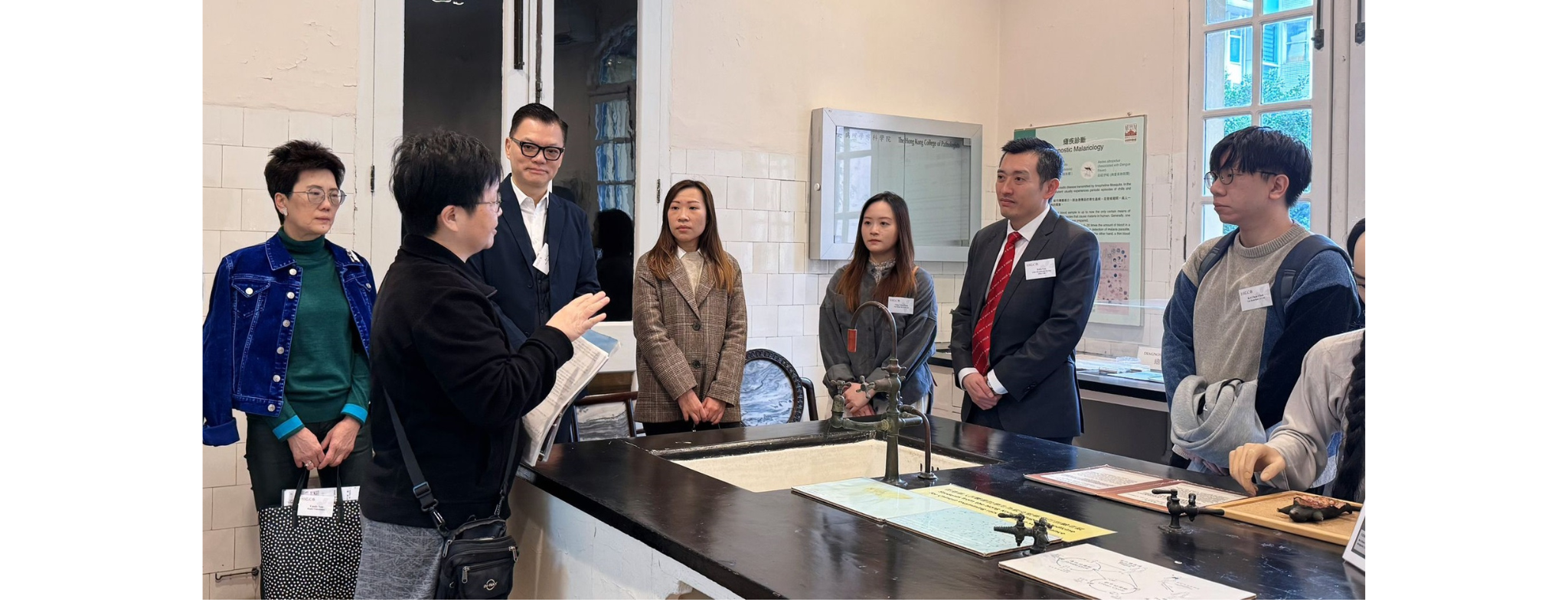
Adjust the Sail not the Wind
When talking about the domestic market gloom, Roy mentioned that while some legacy brands in Hong Kong may shut down due to retirement of owners or lacking successors, others might be unwilling to change and innovate. “Local SMEs should not compete solely on price, but need to keep innovating. Innovation is not just about technology but also mindsets, no matter it’s new products, new marketing approaches, moving upmarket, or exploring the Greater Bay Area and the whole of China market. Thriving by always adjusting along with economic and market changes is the key.”
He uses his own business as an example: from mobile phone accessories, home decor, to ophthalmology care and cosmeceutical product, he has tangoed with the evolving market needs. Recently he led a tour with local medical professionals to visit pharmaceuticals and hospitals in mainland China, and acknowledged that Hong Kong’s pharmaceutical R&D results can be integrated and synergised with mainland clinical research, promoting development in both places.
“Noting that Hong Kong has a reputation for safety and quality, best-in-class system, and global connectivity, Roy added that the HKSAR government has been highly supportive of SMEs, by injecting more funding into the BUD Fund, promoting enterprises to “go global”, and hosting the Hong Kong e-com Festival to help companies explore online business opportunities, etc. He advises local enterprises to realise and harness their own strengths, make good use of the government’s support measures to innovate and capitalise on the market changes.”

